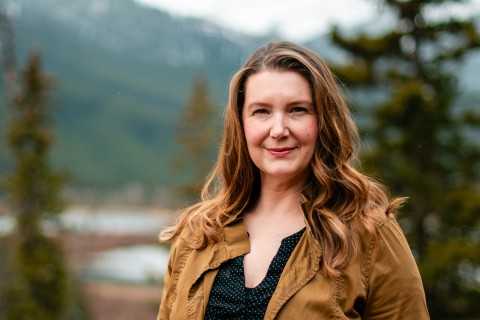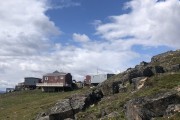
Lynne is the director of the Pembina Institute's renewables in remote communities program, supporting the clean and equitable energy transition of remote communities in Canada. She is mixed blood Inuk, raised in the place known as Calgary, within the Treaty 7 territory of Southern Alberta and Otipemisiwak Métis Government (Districts 5 and 6).
Much of her career has been focused on coordinating and leading projects with Indigenous communities, focused on social and economic development and multistakeholder collaborations. This work experience led her to a deeper understanding of the importance of Indigenous sovereignty and further developed curiosities about the energy challenges faced locally and globally, including the vital role of Indigenous Peoples in the transition to clean energy.
She holds a BA in communication and culture from the University of Calgary and an MA in environmental education and communication through Royal Roads University. You will find her (re)creating in the fresh air, watercolour painting, beading, and spending time as a mother, wife, daughter, sister, auntie, niece, cousin, friend, community member, kin.
Contact Lynne Couves
Lynne Couves's Research & Analysis

Lessons from Whitehorse: A spotlight on the remote transition to clean energy
Reflections from the fourth Renewables in Remote Communities Conference

Clean energy leaders in Whitehorse for unique gathering on remote and Indigenous energy access
2025 marks the tenth anniversary of Pembina Institute’s Renewables in Remote Communities conference


The clean energy transition in remote communities
Five questions with the Renewables in Remote Communities program

Diesel dependency: the hidden cost of living in remote communities
And how clean energy is changing the narrative
Canada’s largest Indigenous-majority owned transmission line a case study in remote diesel-reduction
Pembina Institute applauds Wataynikaneyap Power and Ontario government as two thirds of province’s remote Indigenous communities reach major diesel reduction milestone
